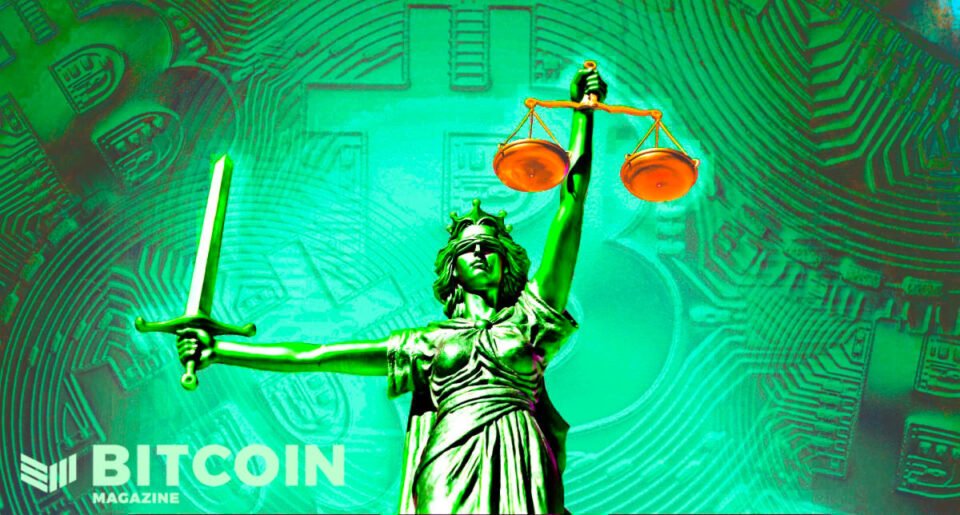Bitonic, the oldest Bitcoin alternate within the Netherlands, now not too lengthy ago had its day in court with the Dutch Central Financial institution (DCB). At exertion used to be the legitimacy of DCB’s mandate that Bitonic (and other Bitcoin exchanges and custodians working within the Netherlands) put in force very stringent “take care of verification procedures” in say to manufacture the legally required registration with the DCB.
The establish’s design within the case used to be customarily favorable in the direction of Bitonic’s complaints, and, on April 7, she gave the DCB six weeks to set up its protection. Wednesday evening, the DNB formally acknowledged the legitimacy of Bitonic’s complaints and revoked its mandate for stringent take care of verification requirements as portion of the registration regime.
The victory is valuable to the persevered vibrancy and profitability of the Dutch Bitcoin alternate.
Background To The Court Case
The speed-as a lot as the court case already started back in Could per chance perchance of 2018, when the European Union handed the fifth Anti-Money Laundering Directive (AMLD5).[1] This directive required the member states of the European Union to put in force into their legal pointers definite guidelines for cryptocurrency exchanges and custodians.
Broadly talking, AMLD5 calls for that cryptocurrency exchanges and custodians (1) manufacture background assessments on their customers, (2) note and file abnormal transactions, (3) and register with a relevant regulatory authority.
Implementation of the AMLD5 directive into Dutch regulation used to be considerably chaotic and contentious to claim the least. The important dialogue level centered on the AMLD5’s mandate for a registration regime (requirement 3 above).
In the muse, the authorities’s idea implementation of AMLD5 into the regulation at the discontinuance of 2018 known as for a licensing regime, in location of a registration regime. The weird and wonderful is a worthy more burdensome requirement than the latter.
This resulted in tall push-back from the Dutch Bitcoin alternate and various other actors, including the Netherlands’ Raad van Command,[2] a key institution for legal overview within the Netherlands. Superseding the requirements of AMLD5 by implementing a licensing regime proved unjustifiable, and the authorities used to be compelled back to the drawing table.
That must had been the discontinuance of the dialogue. But it wasn’t.
While the authorities had certainly modified some of the wording within the proposed regulation and in explicit now spoke of a “registration regime”, many believed that the regulation gentle de facto imposed a licensing regime.[3]
So, again stress used to be exerted on the authorities. After more than a twelve months of dialogue about what’s going to must had been a easy implementation of a registration regime on the premise of AMLD5, the Dutch Bitcoin sector could perchance perchance sooner or later fill a remark of reduction in April 2020 when the authorities said unambiguously that the alternate could perchance well per chance gentle fall below a registration regime, now not a licensing regime, and defined what such a regime entailed.
In the words of Wopke Hoekstra, Minister of Finance at the time of these discussions, “Registration is one thing you elevate out, a license is granted to you. [A license] is de facto one thing completely different. The bar is at a completely different level.”[4]
This regarded as if it can probably perchance perchance leave minute room for ambiguity to the DCB who used to be appointed because the “relevant regulatory authority” to oversee the registration regime.
Here is why the Dutch Bitcoin alternate used to be left rather puzzled on September 21 closing twelve months. On that day, already several months into the processing of registration applications and the closing date nearing, the Dutch Central Financial institution casually conveyed thru a webinar that any withdrawal of bitcoins by a buyer from an alternate or custodian to their have pockets would require stringent take care of verification procedures.
Failure to put in force said procedures earlier than November 21 (the closing date for the registration), so Bitcoin exchanges and custodians had been rapid, would consequence in a refusal to grant registration. This type of refusal for an organization would, in flip, would in point of fact require them to cease operations at that level.
What precisely used to be the DCB mandating with these take care of verification measures?
Of direction, the DCB mandated that on every occasion a buyer withdraws bitcoins from a custodian or an alternate, the service provider would fill to raise radical measures to test that the withdrawal take care of certainly belongs to the client. They advocated various programs on their web pages, including the following (the secure pages has in a duration in-between been taken down):
- For purchasers to raise screenshots of their wallets with the destination take care of.
- For the client and the alternate to video conference for the length of the transaction.
- For purchasers to digitally mark the destination take care of with the associated inner most key.
- For purchasers to return a minute of of the bitcoins they’ve got to the alternate or custodian.
- For the alternate to present the client with an take care of (presumably by possessing an prolonged public key of the client).
These forms of measures would, of direction, potentially be ineffective in combating sanction evasion (or every other financial crime for that topic), saddle a heavy bureaucratic burden on the Dutch Bitcoin alternate, deeply invade buyer privacy, and pose elevated security risks for purchasers. It’s moreover sophisticated to glimpse how such measures is at possibility of be in a location to be justified for the length of the context of a registration regime.[5]
Naturally, the Dutch Bitcoin crew protested again. But the final whisper fell on deaf ears at the DCB.[6] So, Bitonic determined to raise action. They would perchance, below whisper, meet the take care of verification requirements in say to manufacture their registration. But at the identical time, they’d elevate the DCB to court over these requirements.[7]
The Court Case
Bitonic’s grievance in opposition to the DCB used to be three-fold.
First, Dutch politicians fill given a clear indication of what constitutes a registration regime and that the regulation which implements AMLD5 could perchance well per chance gentle be interpreted that system. The take care of verification requirements imposed by the DCB are substantive requirements that are incongruent with the regulation. .
Second, take care of verification requirements are now not mandated by the Sanctions Act of 1977, which formed the legal foundation of the DCB’s requirements. Bitonic, as most other Bitcoin firms working within the Netherlands, is already compliant with this regulation by screening customers or closing beneficiaries of accounts in opposition to lists of politically uncovered persons (or PEPs). Here is the identical system that banks meet the regulation.
Third, the protection is at odds with the EU’s “Overall Files Protection Legislation” (GDPR).[8] This regulation requires that every body files sequence actions will must fill a sound legal foundation. As the DCB’s protection on take care of verification has no such foundation, Bitonic (and other compliant Bitcoin firms) are in violation of GDPR.
Bitonic presented these three complaints in court on March 23, 2021. The establish used to be hesitant to criticize the DCB too harshly given the advanced technical nature of the case. But her design did largely near down in give a boost to of Bitonic’s complaints, despite the reality that she stopped in need of bringing up that take care of verification procedures had been unlawful. She on account of this reality gave the DCB six weeks to set up and revise their protection on take care of verification tips as portion of the registration regime.[9]
Below such stress, it used to be very unlikely for the DCB now to now not tear. So, unsurprisingly, it informed Bitonic on Could per chance perchance 19 that, “after reconsideration”, their take care of verification requirements elevate out “now not elevate out enough justice to the discretion that an institution has to put in force this unique in a possibility-oriented system. DNB has therefore incorrectly dwelling the registration requirement as a situation for the registration of Bitonic.”[10]
Of direction, the DCB acknowledged that their requirements as presented had been unlawful and could perchance well per chance fill never been made. It did moreover cease in need of admitting their unlawfulness.
Implications
The court case is of genuine significance to the Dutch Bitcoin alternate.
While the DCB has now not abolished take care of verification requirements fully, its assertion does fling away worthy extra space for cheap procedures. This will put on administrative charges and red tape for purchasers, provide better privacy protections and security for purchasers, and be definite that that Dutch exchanges and custodians can stay competitive with their international counterparts, including these inner other EU member states (as far as I know, the Netherlands is absolutely the top EU member say that has tried to impose stringent take care of verification requirements).
Bitonic is straight removing its most stringent take care of verification requirements, including the requirement for a buyer screenshot or signature over the receiving take care of.
We must always wait and survey how other Bitcoin firms react to this assertion by the DCB. Given that many doable customers fill apparently moved to international service suppliers in latest months out of concerns over security, privacy, and red tape, they’ll be tidy to apply suit.
While the court ruling and the DCB’s subsequent assertion are completely a welcome pattern, the final implementation of AMLD5 within the Netherlands has left worthy to be desired:
- The implementation of AMLD5 into regulation will must had been a fairly easy topic. As a replacement, the authorities unnecessarily confused the general public enviornment, and the Bitcoin sector in explicit, with more than a twelve months of dialogue relating to the particulars of the implementation of the registration regime.
- Execution of the regulation’s registration regime by the DCB could perchance well per chance gentle moreover had been a fairly easy topic. As a replacement, it attempted to impose requirements far beyond the scope of the regulation. Bored with extra dialogue relating to the topic, it took a court ruling for the DCB to “rethink” these requirements.
- While some friction is to be expected (and more than likely welcomed) with regulating a unique alternate, all of this has posed a a lot more important burden on the Dutch Bitcoin alternate and person crew than used to be well-known. Corporations fill lost revenues and a few fill ceased working fully or moved in other places.[11] The lost alternatives for innovation fill potentially been higher: As a replacement of conducting lengthy discussions with authorities officials, regulators, lawyers, and judges, time would had been better spent on creating innovative unique companies and products and on making improvements to existing ones.
For a country that prides itself on having an delivery and innovative persona, the final above is positively unacceptable.


